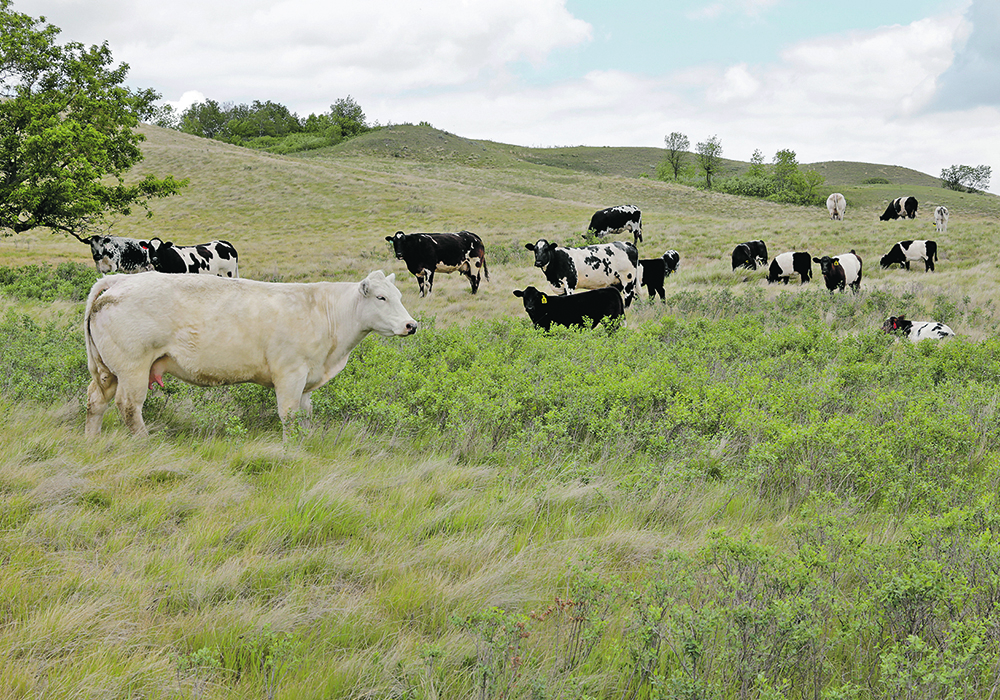Officials say program has been popular among farmers, but discussion of how to recognize early adopters still to come
OTTAWA — The federal government’s incentives to encourage adoption of sustainable agricultural practices ideally won’t be needed as farmers incorporate those practices long term.
Agents that deliver the On Farm Climate Action Fund, which include 13 organizations across Canada, said the incentives are designed to draw in those who were sitting on the fence about new best management practices or those who had never considered them at all, with a view to making them commonplace. Although the program is less than a year old, it has been popular.
Read Also

Government, industry seek canola tariff resolution
Governments and industry continue to discuss how best to deal with Chinese tariffs on Canadian agricultural products, particularly canola.
Early adopters have complained they’ve been left out, but the agencies and federal government said these producers have an important role in encouraging others to follow suit because they can show the economic and environmental value.
OFCAF offers money to producers who adopt better nitrogen management, cover cropping and rotational grazing. Initiated as a pilot in 2021, the program has been extended through 2028.
Marco Valicenti, director general of innovation programs at Agriculture Canada, said federal officials are consulting on what has worked well so far and what hasn’t.
“What I’m hearing from almost all delivery agents is that the program is oversubscribed and generally I think there is a recognition that this is beneficial for producers as well,” he said during a policy workshop at the Canadian Federation of Agriculture annual meeting. “One of the things we’ve been hearing is making sure that the best management practices … are relevant, are regionally flexible.”
He said there have been some challenges communicating who is delivering what best management practices in each province and how businesses can play a role. Valicenti said changes could come but not until 2024 when the extension officially takes effect.
Lynda Nicol, executive director of the Manitoba Association of Watersheds, said the Prairie Watersheds Climate Program has already approved more than 1,000 applications across the three BMPs it administers in Manitoba and Saskatchewan.
As of mid-February, 70 applications for rotational grazing funding, worth $360,000, had been approved, along with 280 for $1.67 million in cover cropping, and 730 in nitrogen management. The latter accounted for spending of $6.35 million and 76 percent of the funds going out the door.
Nicol said the prairie program for cover crops and rotational grazing was challenged last year because of widespread flooding but she expects uptake to increase this year if the weather co-operates.
“Our plans include increasing communications and extension support for all BMPs,” she said, noting there is some confusion because the Canola Council of Canada also delivers a nitrogen management program, the Canadian Forage and Grasslands Association delivers a grazing program in Saskatchewan, and the Manitoba Metis Federation administers all three BMPs.
“There are conflicting messages as far as which programs are available and how to access them,” she said.
One of the key attributes for farmers outside of the money has been knowledge transfer and peer-to-peer learning. Nicol and spokespersons for Ontario and Prince Edward Island deliverers said things like field days, pasture walks and one-on-one mentorship are where the message from early adopters can help. In Ontario, attending a recognized event is a requirement to getting funds.
Donald Killorn, executive director of the P.E.I. Federation of Agriculture, said the government has set a net zero goal for the province by 2040. Agriculture in that province accounts for 25 percent of the emissions and has to cut 105,000 tonnes of carbon emissions.
“People think that on-farm fuel use is a big part of the emissions profile, but of course it’s not,” he said. “It’s the production of crops and livestock that we’re trying to address.”
Killorn said OFCAF is helping to get the ball rolling but producers have to think beyond the temporary, one-time incentive and about how they’re going to continue to use BMPs.
Killorn said there has to be a conversation about properly supporting the early adopters.
“This has introduced the concept to producers perhaps who weren’t considering it at all,” he said of OFCAF. “There’s no question that this leaves open the question of what are we doing to further incentivize our producers to continue to take this seriously, and that sort of leads to, when are we getting our soil carbon methodology so that we can bring our efforts into the regulated carbon market in Canada.”
Nicol added OFCAF has opened a conversation with the public because it’s a large-scale investment that shows how agriculture is addressing sustainability. But she too said the program could improve on how early adopters are rewarded.
Saskatchewan delegate Devon Walker from the Agricultural Producers Association of Saskatchewan said farmers adopt technology or equipment and then never go back.
“The proof of adoption will be if the practice pays for itself and is logical,” he told the panel. “The goal is to not administer these programs.”
Nicol agreed.
“The hope is that an incentive is enough to take a bit of the edge off,” she said. “We are hopeful that with the incentive, and education, and farmer-led training, to provide the opportunity to try something that can have value for your farm.”
Meanwhile, delegates also heard about consultations on the federal government’s Sustainable Agriculture Strategy, which closes March 31. Co-chair Sophie Beecher encouraged all farmers to participate, saying this strategy has to be farmer-led.
She said the government did not begin the consultation with a strategy in hand and wants a draft by the end of this year.


















